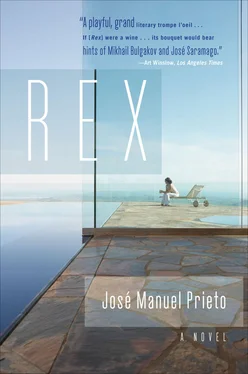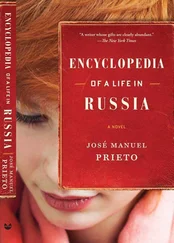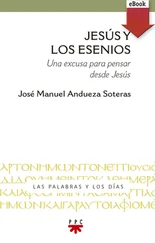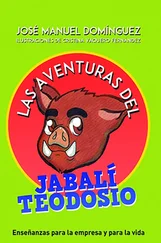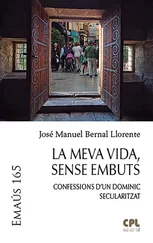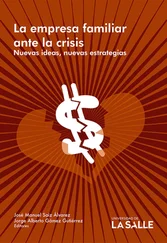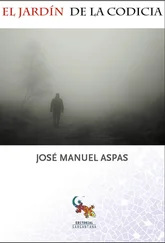I wept that night on the floor of the police station but did not say, did not permit myself to say, did not sully my lips with the words of so filthy an accusation. The police unable to find an explanation or determine what had triggered (like a gun) my rage. What a child I was! How ingenuous my reaction! The shiver I felt, full of admiration, when I found him reading and saw what book it was. And how he displayed it to me in delight, believing me to belong to his cult, a worshipper of the same god.
They didn’t understand a word, the police. They beat me all morning, powerless, a feeling of impotence growing within them. Hearing me speak in that foreign language, so obviously a foreigner (there’s only one small territory on the globe where I’m not, and therefore I am a foreigner more than I am anything else).
Cuban? Cuban! I told them a thousand times. What does it matter? Cuban, yes! And I was dealt another blow. Why, then, does no one here understand you? Jorge is from Puerto Rico: Martínez, Pedro, they don’t understand a word. And he slammed his broad fist, its fingers tightly clenched — let me tell you — into my stomach again. And the questions rained down again: “Who are you talking about? Who are Pierre Hélie, Hugues de Saint-Victor, Borges?”
I looked out at them through a single eye: they’re all French, I told them, or no, from South America, from a country, I don’t remember which one (I don’t know why I thought that if I said Argentina they’d beat me with even greater fury). I woke up that morning on the floor of the cell, and through the window high above me, when I’d risen to my feet and hoisted myself up by the bars, I saw the sea. A wine-dark sea. I wept …
8
Exhausted now, like a swimmer who’s abandoned all struggle and floats without reaching any shore, a man who on one afternoon of his life, full of strength, has the idea — in the Writer, in John Cheever — of crossing through the swimming pools of his neighbors, behind those gigantic Californian houses, and dives through their subterranean branches without finding a way out, the way home, lost in the labyrinth, dying there. Or like a swimmer in time, borne up by the whole movement of the wave and down by the whole movement of the wave, without there being any merit in him.
Upto the service of the last emperor of Russia. The happy days after the journey to Barataria and the successful sale of the diamonds (which I didn’t tell you about), the night of the great ball, when the kingdom seemed to be at hand and I saw your mother as a queen, and flew with her over the blue and white Castle, its galactic blue glittering from the sky.
Downto that flat city, the entirely pernicious example of so many low houses, like a valid refutation of the idea of a king. And still lower, to the floor of the police station, beaten. All my efforts seeming to have led me to nothing, and left me without any desire, for the first time in years, to go down to the sea. The city awakening, its men and women breakfasting on enormous glasses of milk, steam rising from the plates that waiters held up against the sunlight as they came out of the kitchen.
(How to bring her back? How marvelous it would be to make the journey to see her, simply going down the stairs and standing on the lookout on Alondra Boulevard where the taxis pass by, having first lied to Larissa about where I was going. Waiting for one impatiently, getting in full of air, floating in the backseat like those balloons we take home from a party and push inside a taxi, riding along smiling, enormous, lips laughing, teary-eyed, happy because in only half an hour’s travel through this low city … But she does not occupy any of the blocks of its grid; none is marked by having her inside it. I’d have to subjugate myself to the pressurization of an airplane, dragging my feet along the pavement toward its steel flanks. Cuernavaca is far away. There’s no sea in Cuernavaca, I’ve checked on the map. Only green and brown on the paper, an abhorrent place the Writer never heard of, about which he never wrote, though about Los Angeles, yes, I’m sure.)
And pay attention to me here: there’s only this one point I would dispute the Writer on, one thing I don’t agree with: not without there being any merit in me.
I went, I leapt, it was I who leapt. In me, as in one of the Writer’s heros, lies dormant the stuff of which a lord is made— Tuan , he calls it — and which finally organizes itself in the air before falling into that mud, in Patusan, in … the trust, the love, the confidence of the people.
Crowned on my voyage to the sea: at the center, Petya. Speaking to you from the center of the sphere. Assisted by a cloud of instantaneous beings or winged homunculi, the yahoos, they climb high trees as nimbly as a squirrel … with prodigious agility. Small and subjugated devils who would purge the horrible guilt of the treachery of their man Batyk in the court of their fathers, or like captive angels flying to the most remote confines of the sphere. To bring back, in their beaks, fragments and passages of all books, to hold them up in the air before me with profound reverence. All the wisdom of the Book, of all books, before my eyes, infinitely wise, fabulously rich.
Infinitely wise. The generative principle of the Book understood; adding further volumes to the seven initial ones about the Perfect King, confident that perhaps, at a distance of thirty centuries, they would amalgamate into a single book, my clumsy commentaries and allusions to the warm Mediterranean commingled with his infinitely detailed pages on the sea in Normandy. In a single book? In a single book!
And fabulously rich. Because what other proof did I have? What other way of confirming my young life to the emperor of Russia (but you, so young? Yes, me, so young) but the enormous wealth, the unimaginable sum in diamonds that I carried in my pocket like a voyager across time?
Not a flower, as the Commentator falsely states: imagine that, a rose as proof of a journey to paradise! For paradise, as is well known and sustained by the authority of John the Theologian, is thickly strewn with diamonds, the stones he cites with undeniable pleasure in the final pages of the Book: jasper, sapphire, chalcedony, emerald, sardonyx, sardius, chrysolite, beryl, topaz, chrysoprase, jacinth, amethyst!
What would you bring back, Petya, from a journey through time? A rose? Or diamonds stitched into the hem of your coat that — when the friends who had gathered for a banquet in your honor reacted with incredulity to your story, all you had seen and heard in China — you would produce before their disbelieving eyes, as Marco Polo did in 1295, the final argument of the diamonds he poured out from the unstitched lining of his coat or caftan?
So that those present opened their mouths in wonder and shouted: a million! Which is what that Book is titled, the fifth I cite here, in accordance with Valentinian’s rule for commentary: no more than five authors.
Millions in diamonds! Just like me. The best and only proof of my journey through time. Remember when you asked me: What is the Book about? What is its subject? And I told you, I answered: It’s about money, about how to make money. But now I can tell you this, too — for according to an old saying in the country where I am now, time is money —it is also about time. In search of lost money? (No, that would be vulgar and loathsome. Better to seek time.) You’re right, Petya. Time.
Rex is the third and final installment in a trilogy that began with Enciclopedia de una vida en Rusia ( Encyclopedia of a Life in Russia; 1997) and Livadia , or Mariposas nocturnas del imperio ruso (1999; published in English translation as Nocturnal Butterflies of the Russian Empire , 2000). A few clarifications strike me as pertinent. With all three novels, I’ve tried to go beyond the realism commonly associated with the autobiographical novel (which all three are), yet not toward magic or magical realism , but rather toward science and a kind of magico-scientific realism , if such a thing is possible. Everything in this book, strange or outlandish as it may seem, is strictly factual and was exhaustively researched, in particular the plot line involving the manufacture of synthetic diamonds. The same is true of the many references to quantum physics, including matters as remote from a child’s mind as Bohm’s paradox of the fish, and terms taken from black-hole theory such as spatial rupture, singularity, event horizons, stalled light, etc.
Читать дальше
